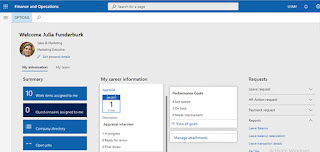Ensuring Data Security with Cloud HR Software: Best Practices and Considerations
Select a Trustworthy Cloud Provider
Choosing
a safe cloud provider is the first step in assuring data security with cloud HR
software. A supplier with strong security measures, such as data encryption,
firewalls, and multi-factor authentication, is what you should be looking for.
Additionally, make sure the provider you choose complies with industry security
standards like ISO 27001 or SOC 2.
Put access controls in place
To
guarantee that only authorised workers have access to sensitive HR data, access
restrictions are crucial. Access controls, such as user access controls,
role-based access controls, and data access controls, may be implemented at
several levels using cloud HR software. To guarantee that only individuals who
need access to the data do so, these restrictions should be periodically
examined and updated.
Update Systems and Software
Frequently
To
ensure data security, software and systems must be updated often. Regular
software updates are generally released by cloud HR software vendors to resolve
security flaws and other problems. To keep the system secure, it's crucial to
make sure that these updates are implemented right away.
Use multiple-factor authentication
and strong passwords.
Using
strong passwords and multi-factor authentication is one of the most fundamental
yet crucial measures in maintaining data security with cloud HR software.
Passwords have to be challenging, one-of-a-kind, and often updated. By asking
users to give additional authentication factors, such as a code delivered to
their phone in addition to a password, multi-factor authentication offers an
extra layer of protection.
Regularly do security audits
Security
measures should be functioning as intended, and regular security audits may
assist find any possible flaws in the system. Qualified experts who are
knowledgeable with cloud HR software and are able to see possible dangers and
weaknesses should perform these assessments.
Employee Education on Data Security
Best Practises
One
of the largest risks to data security is human mistake. Employees must get
training on recommended practises for data security, including not sharing
passwords, avoiding phishing scams, and exercising caution while using public
Wi-Fi networks to access data. Employees should get regular training to assist
them understand the hazards and how to preserve sensitive HR data.
Prepare a disaster recovery plan.
In
event of a data breach or other security catastrophe, it's crucial to have a
disaster recovery strategy in place. This strategy should include actions for
reacting to the event, locating the breach's origin, minimising damage, and
alerting the parties impacted. The strategy should be regularly tested to make
sure it operates as intended and can be promptly deployed in the case of an
emergency.
Conclusion
Businesses
who wish to profit from cloud computing while simultaneously safeguarding
sensitive HR data must ensure data security using cloud HR software. Businesses
can help ensure that their cloud HR software is secure and protected against
potential threats by selecting a secure cloud provider, implementing access
controls, regularly updating software and systems, using strong passwords and
multi-factor authentication, conducting regular security audits, training
employees on data security best practises, and having a disaster recovery plan
in place.


Comments
Post a Comment